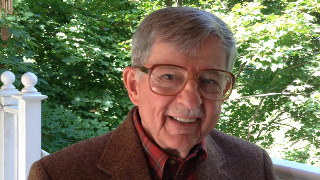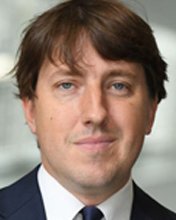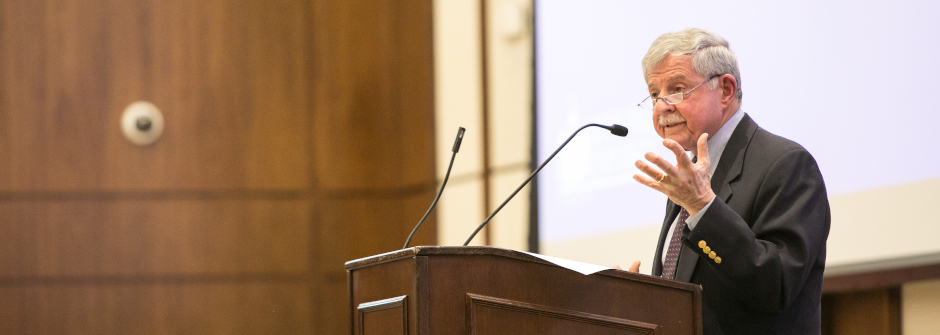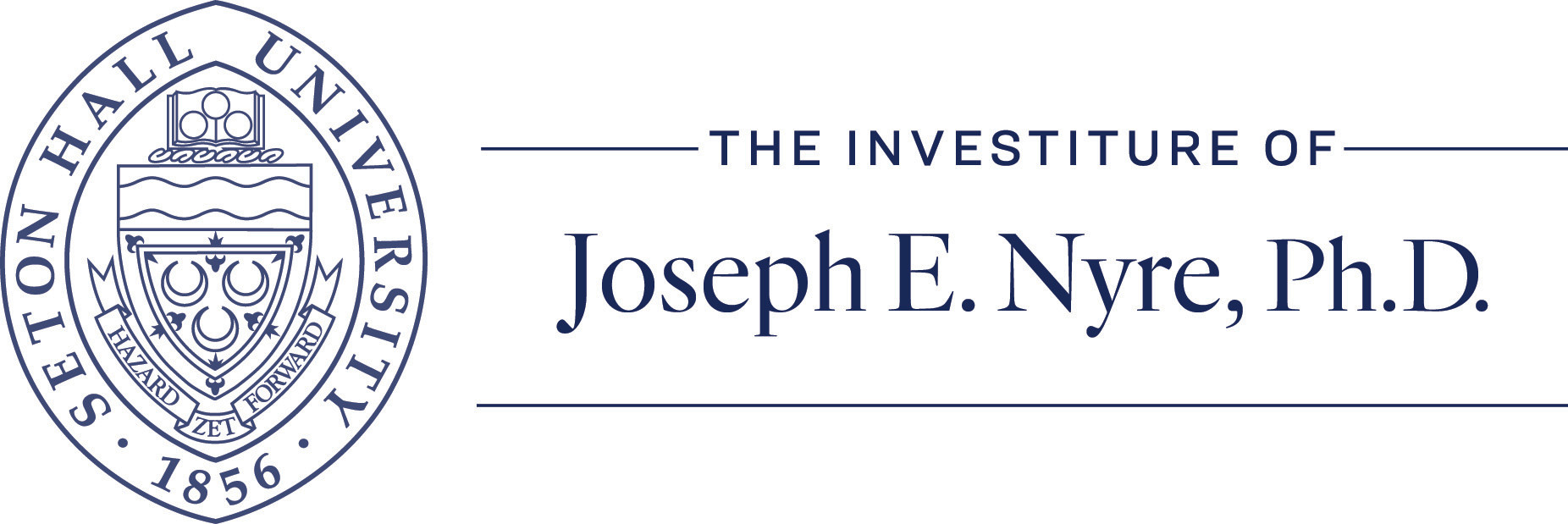About the Event
The inaugural event in this series, which took place on Tuesday, November 12, featured philosopher and theologian John D. Caputo, Ph.D. Drawing upon his career as a professor in both Catholic and secular institutions, Caputo raised questions that explore how the ideas of state, religion and university fit together. Questions such as, Is the very idea of a “church-related university” a square circle, at odds with the freedom of inquiry demanded by the university? Is “political correctness” a threat to academic freedom? Can a church-related university say “let the chips fall where they may” when it comes to research? If universities were all equally diverse, would they not then all be the same? What would a university that is specifically Catholic look like?

John D. Caputo, Ph.D.
John D. Caputo, the Thomas J. Watson Professor of Religion Emeritus (Syracuse University) and the David R. Cook Professor of Philosophy Emeritus (Villanova University), is a hybrid philosopher/ theologian who works in the area of contemporary continental philosophy and has a special interest in the light that continental philosophy sheds on religion.
He is the author of 20 books and some 200 articles and book chapters. As a philosopher he has published a number of books on the problem of "interpretation" which is known as "hermeneutics," where we raise questions like: Is there ever anything that is not an interpretation? Are there "pure facts" that are completely uninterpreted? Hermeneutics is basically a theory of truth, which claims that the way we attain truth is through a good interpretation, and so to defend a dichotomy between "absolute truth" and "relativism" is a mistake.
“I do not recommend ignorance and I am not saying that there is no truth, but I am arguing that the best way to think about truth is to call it the best interpretation that anybody has come up with yet while conceding that no one knows what is coming next. There are lots of competing truths battling with one another for their place in the sun, and the truth is that we have to learn to cope with the conflict. The skies do not open up and drop The Truth into our laps.”
Sponsors
This event was sponsored by the Office of the Provost and the Office of Mission and Ministry.
Great Thinkers on Academic Freedom
View the Great Thinkers on Academic Freedom PowerPoint here »
Moderator

Professor Coenen brings a national reputation as a scholar of U.S. constitutional
law. His work focuses on the structure and implementation of public law norms, paying
special attention to the challenges that courts confront when translating abstract
legal dictates into workable rules of public law doctrine. In pursuing his scholarship,
Coenen seeks to offer insights of value to theorists and practitioners alike. Read More »


